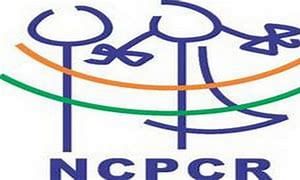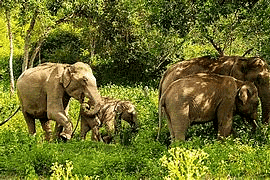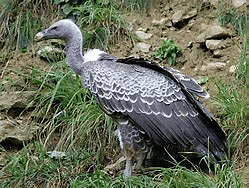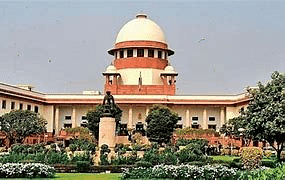UPSC Daily Current Affairs- 7th February 2024 | Current Affairs & Hindu Analysis: Daily, Weekly & Monthly PDF Download
GS-I
Soda Lake
Subject: Geography

Why in News?
Recently, Scientists have discovered that a shallow “soda lake” in western Canada.
Background:-
- It could be a good match for Darwin’s “warm little ponds” where life got started on the primordial Earth.
About Soda Lake:-
- It is a lake with a pH value usually between 9 and 11.
- A soda lake or alkaline lake is a lake on the strongly alkaline side of neutrality, typically with a pH value between 9 and 12.
- High carbonate concentration, especially sodium carbonate, is responsible for the alkalinity of the water.
- Geological, climatic, and geographic requirements are required for a lake to become.
- A topography that limits the outflow of water from the lake is needed.
- These are the most productive aquatic environments on Earth because of the availability of dissolved carbon dioxide.
- They occur naturally in both arid and semi-arid areas.
- These are dominated by prokaryotes like bacteria and archaea, especially in lakes with higher levels of alkalinity.
Source: Science Daily
GS-II
Uniform Civil Code (UCC)
Subject: Polity

Why in News?
Recently, the Uniform Civil Code (UCC) draft report was approved by the Uttarakhand Cabinet.
Background:-
- It was tabled in the state assembly as a bill for enactment.
About Uniform Civil Code (UCC):-
- UCC is a generic set of governing laws for every citizen without taking into consideration religion.
- The Constitution in Article 44 requires the State to strive to secure for its citizens a Uniform Civil Code(UCC) throughout India.
- Article 44:According to this article, “The State shall endeavour to secure for the citizens a uniform civil code throughout the territory of India”.
Historical Background:-
- The Supreme Court for the first time directed the Parliament to frame a UCC in the case of Mohammad Ahmed Khan v. Shah Bano Begum in the year 1985.
- In this case, Shah Bano claimed maintenance from her husband under Section 125 of the Code of Criminal Procedure after she was given triple talaq by him.
- However, the government overturned the Shah Bano case decision by way of the Muslim Women (Right to Protection on Divorce) Act, 1986 which curtailed the right of a Muslim woman to maintenance under Section 125 of the Code of Criminal Procedure.
Need of UCC:-
Gender Justice:–
- It is commonly observed that personal laws of almost all religions are discriminatory towards women.
- Men are usually granted upper preferential status in matters of succession and inheritance.
- Muslim men are allowed to marry multiple wives, but women are forbidden from having multiple husbands.
- Even after the 2005 amendment to the Hindu Succession Act, women are still considered part of their husband’s families after marriage.
- So, in case a Hindu widow dies without any heirs or will, her property will automatically go to her husband’s family.
- Men (fathers) are also treated as ‘natural guardians’ and are given preference under the Hindu Minority and Guardianship Act.
- A uniform civil code will establish gender justice by bringing both men and women to par.
Promote national unity:
- A unified personal law irrespective of gender, caste, creed, etc. will boost national unity and solidarity.
Simplification of laws: It will eliminate the overlapping of laws. Different personal laws (Codified and Uncodified) practised in India:-
- Hindu Personal Law
- Hindu personal law is codified in four bills: the Hindu Marriage Act, Hindu Succession Act, Hindu Minority and Guardianship Act, and Hindu Adoptions and Maintenance Act.
- The term ‘Hindu’ also includes Sikhs, Jains and Buddhists for the purpose of these laws.
- It was codified by the Parliament in 1956.
- Muslim personal laws
- A 1939 Act enacted by the British said that their personal Law (ie, the Shariat) would govern Muslims.
- The Muslim Personal Law (Shariat) Act, 1937 is a short statute with five provisions.
- It covers provisions of marriage, divorce, children’s custody or inheritance Intestate succession, dissolution of marriage etc.
- Secular’ laws:-
- These laws disregard religion altogether. These include:
- Special Marriage Act: for Inter-religion marriages and
- Guardians and Wards Act: establishes the rights and duties of guardians.
- Other laws:-
- In the Northeast, there are more than 200 tribes with their own varied customary laws.
- Apart from it, different personal laws also govern Christians and Jews.
- Thus, a UCC will simplify these laws into one standard.
Source: Times of India
GHAR - GO Home and Re-Unite Portal
Subject: Governance

Why in News?
Recently, GHAR – GO Home and Re-Unite Portal have been launched .
Background:-
- National Commission for Protection of Child Rights (NCPCR), has developed and launched a portal namely GHAR – GO Home and Re-Unite (Portal for Restoration and Repatriation of Child).
About GHAR – GO Home and Re-Unite Portal:-
- It is a portal to digitally monitorand track the restoration and repatriation of children according to the protocols under the Juvenile Justice (Care and Protection of Children) Act, 2015, and Rules thereof.
- Objective: to digitally monitor and track the restoration and repatriation of children according to the protocol.
- Ministry: Ministry of Women and Child Development.
Important Features:-
- Digital tracking and monitoring of children who are in the Juvenile Justice system and have to be repatriated to another Country/State/District.
- Digital transfer of cases of children to the concerned Juvenile Justice Board/Child Welfare Committee of the State.
- It will help in speedy repatriation of children.
- Where there is a requirement for a translator/interpreter/expert, a request will be made to the concerned State Government.
- Child Welfare Committees and District Child Protection Officers can ensure proper restoration and rehabilitation of children by digitally monitoring the progress of the case of the child.
- A checklist format will be provided in the forms so that the children who are being hard to repatriate or children who are not getting their entitled compensation or other monetary benefits can be identified.
- A list of government-implemented schemes will be provided so that at the time of restoration the Child Welfare Committees can link the child with the schemes to strengthen the family and ensure that the child remains with his/her family.
Source: PIB
GS-III
Exercise Vayu Shakti-24
Subject: Defense

Why in News?
Recently, Exercise Vayu Shakti-24 took place.
Background:-
- The Indian Air Force will be conducting it.
About Exercise Vayu Shakti-24:-
- Date: 17 February 2024.
- Venue: Pokhran Air to Ground Range, near Jaisalmer.
- The exercise will also showcase joint operations with the Indian Army.
- This year, the exercise will see participation by 121 aircraft, including the indigenous Tejas, Prachand and Dhruv.
- Other participating aircrafts: Rafale, Mirage-2000, Sukhoi-30 MKI, Jaguar, Hawk, C-130J, Chinook, Apache and Mi-17.
- Indigenous Surface to Air Weapon systems Akash and Samar will demonstrate their capability to track and shoot down an intruding aircraft.
- Exercise Vayu Shakti will be a demonstration of the IAF’s capability to deliver weapons with long range, precision capability as well as conventional weapon accurately, on time and with devastating effect, while operating from multiple air bases.
- The Indian Air Force is slated to carry out three large-scale war games namely, Vayu Shakti, Gagan Shakti and Tarang Shakti.
- Special operations by the IAF transport and helicopter fleets, involving the Garuds and Indian Army elements will also be on display.
Source: PIB
Sepahijala Wildlife Sanctuary (SWL)
Subject: Environment and Ecology

Why in News?
The Sepahijala Wildlife Sanctuary of Tripura recently welcomed a new batch of animals, which include two Royal Bengal tigers, two leopards, four golden pigeons, a silver pigeon, two peafowls, and four hill mynas.
About Sepahijala Wildlife Sanctuary (SWL):
- Location: It is located around 25 km from Agartala, Tripura.
- History:
- To conserve and propagate the biodiversity of the area, the Sepahijala bio-complex came into existence in 1972.
- With the addition of a botanical garden, a deer park, and a zoo, the bio-complex was subsequently attributed to the status of Sepahijala Wildlife Sanctuary in early 1987.
- It is spread over 18.5 sq. km and is home to migratory birds and animals.
- The wildlife sanctuary is divided into five sections, basically to segregate the different types of animals living here. They are the carnivore section, primate section, ungulate section, reptile section, and aviary section.
- It also has two natural lakes, namely Abasarika and Amrit Sagar.
- Clouded Leopard National Park, established in 2007, is a part of SWL.
- Vegetation: Moist deciduous forest
- Flora: The sanctuary has no less than 456 plant species; many kinds of bamboo and a variety of grasses and medicinal plants also grow in the sanctuary.
- Fauna:
- It is the habitat of different species of primates like Rhesus macaque, Pigtailed macaque, Capped langur, Spectacled monkey, Slow loris and several other wild animals like Leopard, Clouded leopard, Jungle fowl, Civets, Barking, Deer, Wild pig, etc.
- The crab-eating mongoose (which was last seen in the 1930s) has also been revived here.
- The avian population of the sanctuary is also rich, with a variety of winged storks, Whistling teal, and the White ibis.
Source: India Today
India’s first Hypervelocity Expansion Tunnel Test Facility
Subject: Science and Technology

Why in News?
The Indian Institute of Technology Kanpur (IIT-K) has successfully established and tested India’s first Hypervelocity Expansion Tunnel Test Facility recently.
About India’s first Hypervelocity Expansion Tunnel Test Facility:
- The S2, nicknamed 'Jigarthanda', is a 24-metre-long facility located at IIT Kanpur’s Hypersonic Experimental Aerodynamics Laboratory (HEAL) within the Department of Aerospace Engineering.
- It is India’s first Hypervelocity Expansion Tunnel Test Facility.
- It was indigenously designed and developed over three years with funding and support from the Aeronautical Research and Development Board (ARDB), the Department of Science and Technology (DST), and IIT Kanpur.
- It is capable of generating flight speeds between 3-10 km/s, simulating the hypersonic conditions encountered during the atmospheric entry of vehicles, asteroid entry, scramjet flights, and ballistic missiles.
- It will be a critical asset for the Indian Space Research Organisation (ISRO) and the Defence Research and Development Organisation (DRDO).
- It will serve as a testing ground for ongoing missions of ISRO and DRDO like Gaganyaan, Reusable Launch Vehicles (RLV), and hypersonic cruise missiles, enabling the development of more advanced and reliable aerospace technologies.
Source: India Today
Himalayan griffon
Subject: Environment

Why in News?
In the first-ever Tri-State synchronised vulture survey 320 individual vultures were counted in the seven-protected areas spread over Kerala, Karnataka and Tamil Nadu and Himalayan griffon is only reported from Wayanad Wildlife Sanctuary.
About Himalayan griffon:
- It is an Old-World vulture in the family Accipitridae.
- It is one of the two largest Old-World vultures and true raptors.
- These are monogamous and pairs return to the same nesting and roosting sites from year to year.
- These are diurnal and mostly solitary species.
- Distribution:
- It is found along the Himalayas and the adjoining Tibetan region and is also found in the Central Asian mountains.
- Occasionally it migrates to northern India but migration usually only occurs altitudinally.
- Conservation status
- IUCN: Near Threatened
Key facts about Wayanad Wildlife sanctuary
- It is located in Kerala and is an integral part of the Nilgiris Biosphere Reserve.
- It is contiguous to the tiger reserves of Nagarhole and Bandipur of Karnataka and Mudumalai of Tamil Nadu.
- The Kabini River which is a tributary of the Kaveri River flows through the sanctuary.
- Vegetation: It includes moist deciduous forests and West Coast semi-evergreen forests
- Flora: It consists of plantations of teak, eucalyptus and Grewelia.
- Fauna: Elephant, Gaur, Tiger, Panther, Sambar, Spotted deer, Barking deer, Wild boar, Sloth bear, Nilgiri langur etc.
Source: The Hindu
Kerala is one of most financially unhealthy States: Centre
Subject: Economics

Why in News?
The ongoing dispute between the Centre and the Kerala government regarding fiscal management has sparked debates on financial health, resource allocation, and federal governance.
Financial Mismanagement in Kerala
- Poor Fiscal Health: The Centre contends that Kerala’s fiscal condition is precarious, attributing it to inadequate management of public finances.
- Financial Assistance: Despite substantial financial support provided by the Centre, including additional funds beyond the recommendations of the 15th Finance Commission, Kerala continues to face financial stress.
- Mismanagement: Kerala’s alleged reckless borrowing, financing of unproductive expenditure, and poorly targeted subsidies exacerbate its financial woes, impacting both state and national economies.
What data has to say?
- Rising Liabilities: Kerala’s outstanding liabilities, as a percentage of its Gross State Domestic Product (GSDP), have consistently increased from 31% in 2018-19 to 39% in 2021-22, exceeding the national average.
- Implications of High Liability Ratio: The Centre warns that the elevated outstanding liability ratio results in heightened interest payments, exacerbating fiscal deficits and potentially leading to a debt trap.
- Increased Committed Expenditure: Kerala’s committed expenditure as a percentage of revenue receipts has risen from 74% in 2018-19 to 82.40% in 2021-22, surpassing that of any other state. This trend limits the state’s capacity for productive government spending, negatively impacting long-term growth.
Kerala’s Defence
- Federal Structure: Kerala asserts its rights under the federal system to regulate its finances independently, highlighting the Centre’s infringement on its fiscal autonomy.
- Economic Damage: The state argues that the Centre’s actions, such as imposing arbitrary borrowing ceilings, threaten Kerala’s economic stability, jeopardizing its ability to meet developmental goals.
Legal Response
- Court Proceedings: The Attorney General’s submission to the Supreme Court forms part of the legal battle initiated by Kerala against the Centre’s alleged interference in state finances.
- Protection of Federalism: Kerala seeks judicial intervention to safeguard the federal structure, emphasizing the state’s authority over budgetary management and borrowing decisions.
- FRBM Rescue: While the FRBM Act of 2023 primarily applies to the central government, some states have enacted their own FRBM legislation to maintain fiscal discipline at the state level. Kerala doesn’t have its own version yet.
Implications
- National Ramifications: The outcome of this dispute holds significance beyond Kerala, impacting the broader framework of fiscal federalism and intergovernmental relations.
- Developmental Concerns: The protracted legal battle could impede Kerala’s developmental agenda and exacerbate financial strains, affecting the welfare of its citizens.
Conclusion
- The Centre-State fiscal dispute underscores the complexities inherent in federal governance and fiscal management.
- As legal proceedings unfold, the resolution of this conflict will shape the contours of intergovernmental relations and define the boundaries of fiscal autonomy within India’s federal structure.
Source: Times of India
|
55 videos|5389 docs|1141 tests
|
FAQs on UPSC Daily Current Affairs- 7th February 2024 - Current Affairs & Hindu Analysis: Daily, Weekly & Monthly
| 1. What is the significance of Soda Lake? |  |
| 2. What is the purpose of the Uniform Civil Code (UCC)? |  |
| 3. What is GHAR - GO Home and Re-Unite Portal? |  |
| 4. What is the significance of Exercise Vayu Shakti-24? |  |
| 5. What is the importance of Sepahijala Wildlife Sanctuary (SWL)? |  |
















